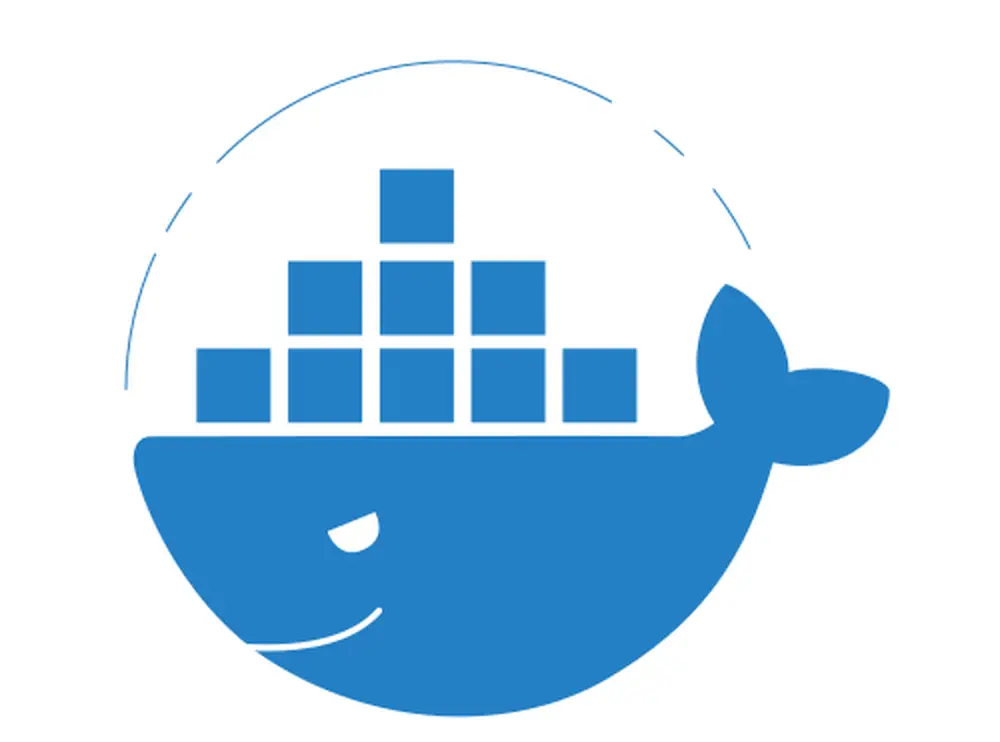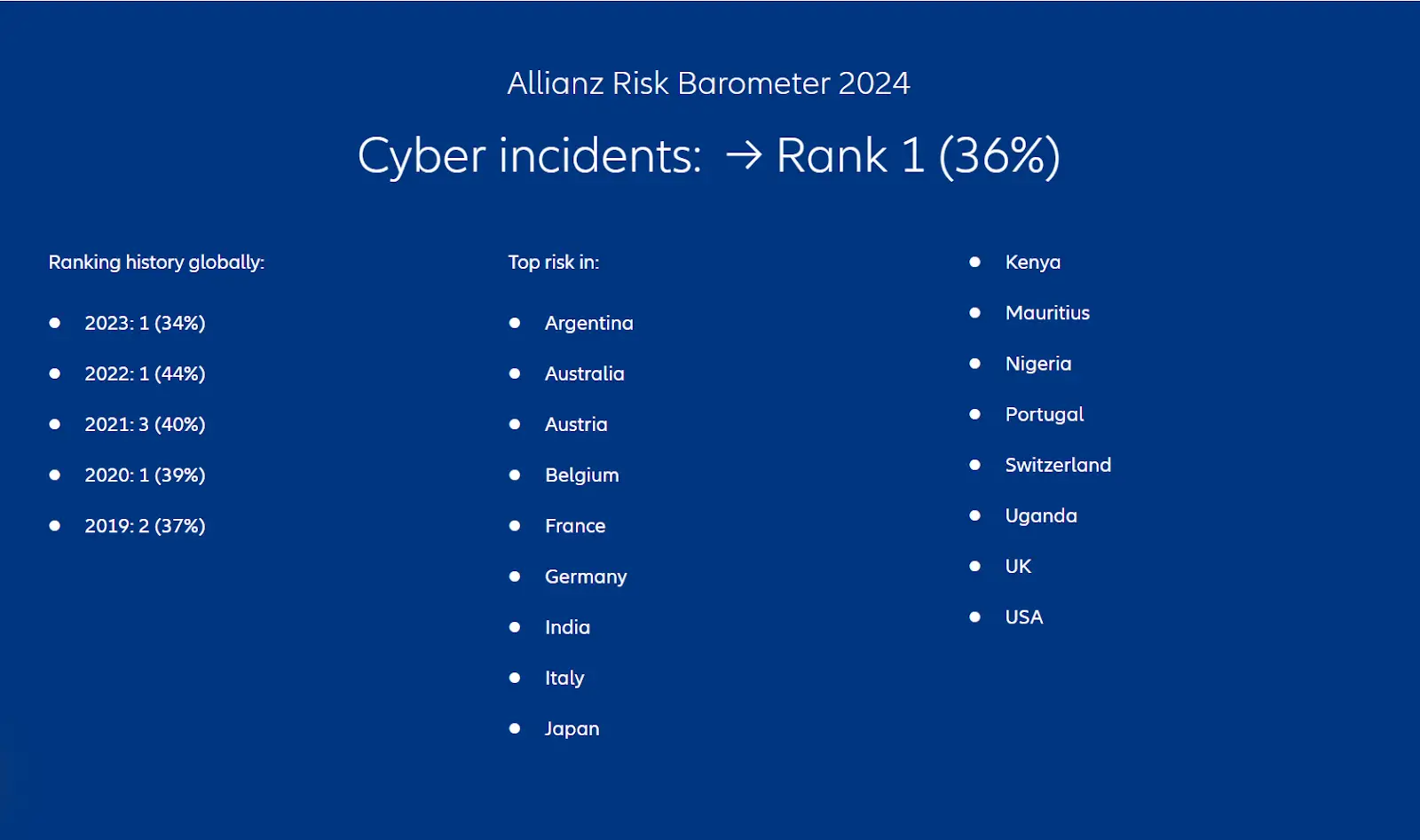"RSA 2024: Elevating Cyber Resilience to Equal Footing with Cyberdefense"
Introduction:
The RSA Conference is the premier
gathering for the cybersecurity
community, offering a unique
opportunity to gain essential
insights, participate in meaningful
discussions, and discover
groundbreaking solutions that can
significantly impact your
organization. Amidst an industry
defined by constant evolution, RSA's
goal is to equip you with the tools
and knowledge needed to stay ahead
of emerging threats and challenges.
At the heart of the global
cybersecurity network, the RSA
Conference is where professionals
from around the world come together
to exchange invaluable knowledge,
engage in insightful conversations,
and explore cutting-edge solutions.
In a field marked by rapid
advancements and continuous change,
RSA is dedicated to helping you
maintain a proactive stance,
ensuring you remain at the forefront
of cybersecurity innovation.
Top Takeaways from RSA 2024 Unveils New Strategies for Building Cyber Resilience
-
Product upgrades and launches
-
Secure by Design pledge
-
Securing generative AI: What it is important in cyberdefense world
-
RSAC Innovation Sandbox 2024 winner
Over 40,000 people converged at the Moscone Center for the RSA Conference 2024 last week to share ideas and data, launch products, and hear multiple viewpoints from the industry that had emerged during the previous 12 months. Take a look at Spiceworks News & Insights’ takeaways from RSA Conference 2024
RSA Conference 2024 Highlights
The RSA Conference 2024 was a landmark event, featuring over 650 speakers who delved into the most pressing issues in cybersecurity. Throughout the conference, attendees were engaged with a wide array of expert talks and discussions. The event culminated in a spectacular finale, with Alicia Keys captivating the audience with her greatest hits.
In March, Cisco completed its $28 billion acquisition of Splunk and soon showcased the integration of Splunk’s security portfolio and telemetry tools into its XDR platform at RSA Conference 2024. SentinelOne introduced its Singularity Operations Center, offering cybersecurity professionals a unified security management tool for centralized investigations. Palo Alto Networks made headlines with its Precision AI, embedding AI, machine learning, and automation across its Strata, Prisma Cloud, and Cortex platforms. Cloudflare launched its Unified Risk Posture service, enhancing companies' risk management strategies. Google unveiled a unified threat intelligence service incorporating data from Mandiant, VirusTotal, and Google. Wiz presented AI-SPM, designed to secure AI tools in software development and detect misconfiguration issues. Recorded Future enhanced its threat analysis tools with Collective Insights and Intelligence Cards, and introduced AI Conversation for prompt-based summary generation. CrowdStrike’s Falcon Next-Gen SIEM now includes generative AI through its Charlotte GenAI assistant for contextual incident summaries and real-time analyst updates. Securonix integrated large language models like Anthropic Claude 3 into its Unified Defense SIEM for advanced threat detection. Fortinet's IoT security platform, powered by FortiAI, offers AI-based threat hunting and analysis, positioning FortiManager as a pioneering AI-driven IoT security solution.
At RSA Conference 2024, 68 organizations, including industry giants like Microsoft, AWS, Google, IBM, HP Enterprise, Tenable, Trend Micro, Palo Alto Networks, and Fortinet, committed to the Secure by Design pledge initiated by the Cybersecurity and Infrastructure Security Agency (CISA). This voluntary pledge, aimed at addressing critical cybersecurity challenges, outlines seven key objectives for the upcoming year: increasing the use of multi-factor authentication (MFA), reducing default passwords, eliminating classes of vulnerabilities, ensuring timely application of security patches, establishing a vulnerability disclosure policy, maintaining CVE reporting transparency, and enabling customers to detect intrusions. Although the pledge is not legally binding, CISA director Jen Easterly emphasizes its importance in promoting the principle of safe technology design and addressing the "dangerous-by-design" flaws present in many products.
At the RSA Conference 2024, IBM unveiled its 'Securing Generative AI' report, revealing that only 24% of generative AI projects are adequately secured. The report highlights the emerging threats associated with AI usage and notes that over 90% of AI security measures rely on third-party products or partners. IBM emphasized that, similar to cloud adoption, leaders are seeking comprehensive security support from partners for generative AI. The report also provides a detailed overview of the AI threat landscape and offers actionable guidance for organizations to enhance their security practices.
At the RSA Conference 2024, IBM unveiled its 'Securing Generative AI' report, revealing that only 24% of generative AI projects are adequately secured. The report highlights the emerging threats associated with AI usage and notes that over 90% of AI security measures rely on third-party products or partners. IBM emphasized that, similar to cloud adoption, leaders are seeking comprehensive security support from partners for generative AI. The report also provides a detailed overview of the AI threat landscape and offers actionable guidance for organizations to enhance their security practices.
LevelBlue Research Reveals Leaders Sacrificing Risk Management for Innovation Amid Growing Computing Complexity
The LevelBlue Futures Report found that 85% of participants surveyed believe computing innovation is increasing risk. Additionally, 74% of global respondents confirmed that the opportunity of computing innovation outweighs the corresponding increase in cybersecurity risk - making cyber resilience nearly impossible to achieve. In fact, less than half (47%) of survey respondents declared their cybersecurity processes as standardized, with only 35% having formalized incident response.
Cyber resilience requires C-suite and board support, yet 63% of respondents say leadership doesn’t prioritize cyber resilience, and 72% admit their governance team doesn’t understand it.
-
56% have limited visibility of the IT estate, with 72% believing digital transformation is an ongoing barrier to cybersecurity resilience.
The adoption of Cybersecurity-as-a-Service (CSaaS) is on the rise, with 32% of organizations opting to outsource their cybersecurity needs rather than managing them in-house.
Four in 10 recognize distributed denial-of-service (DDoS) as a probable attack vector, but another 40% of respondents admit to lacking confidence in handling it
42% express hesitancy regarding their capacity to manage nation-state cyberattacks, recognizing the potential to disrupt critical infrastructure, sow public distrust, and channel espionage exploits.
77% accept that budgets are reactive rather than allocated to proactively address cyber resilience. An additional 46% identify compliance as the driver most likely to unlock cybersecurity budgets.
78% accept or believe that measuring cybersecurity investments based on return on investment is outdated.
To achieve optimal cyber resilience, the LevelBlue Futures Report suggests five key steps: identifying barriers to resilience, incorporating security by design, aligning cyber investments with business goals, building a robust support ecosystem, and evolving cybersecurity strategies.
Bob McCullen, Chairman and CEO of LevelBlue, emphasized the importance of this report, stating, "The launch of the LevelBlue Futures Report reaffirms our dedication to providing the latest industry research. Our goal is to help organizations better prepare for cyber attacks, allocate IT budgets more effectively, and enhance overall cyber resilience. We are committed to delivering insightful, vendor-neutral research to inform our customers and shape the future of the industry."
SMIIT CyberAI: Empowering Organizations to Achieve Unparalleled Cyber Resilience Amidst Growing Complexity"
At SMIIT CyberAI, we understand the critical cybersecurity challenges highlighted by the LevelBlue Futures Report. Our comprehensive approach addresses these issues, helping your organization enhance cyber resilience amid increasing computing complexity. First, we conduct thorough assessments to identify vulnerabilities and barriers within your current cybersecurity framework, tailoring strategies to meet your specific needs. Our team integrates proactive security measures and advanced AI solutions into every stage of your IT and development processes, ensuring robust protection from the ground up. We also help align your cybersecurity investments with your business objectives, maximizing the return on investment and optimizing budget allocation beyond outdated metrics. To build a robust support ecosystem, we offer Cybersecurity-as-a-Service (CSaaS) to efficiently manage your cybersecurity needs, leveraging our extensive network of partners for comprehensive support. Our services are designed for continuous improvement, regularly updating and enhancing your cybersecurity strategies to keep pace with emerging threats. We establish formalized incident response plans to ensure your organization is prepared for any cybersecurity event. At SMIIT CyberAI, we empower your organization to achieve unparalleled cyber resilience, leveraging our expertise and innovative solutions to navigate the complexities of cybersecurity and protect your business against evolving threats.
Recent Tweets
- "Protect your digital fortress! 💻🔒 Stay ahead of cyber threats with these essential cybersecurity tips" https://bit.ly/smiit-cyberai1 Jan/12/2024
- "Hackers beware! 🔍🛡️ Strengthen your defense against cyber attacks with the latest cybersecurity tools and best practices" https://bit.ly/smiit-cyberai2 Feb/10/2024

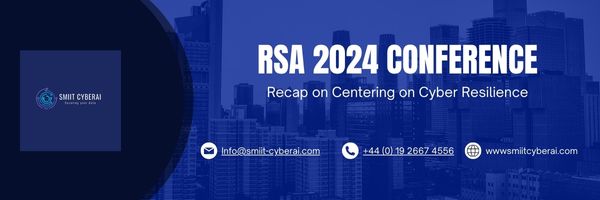
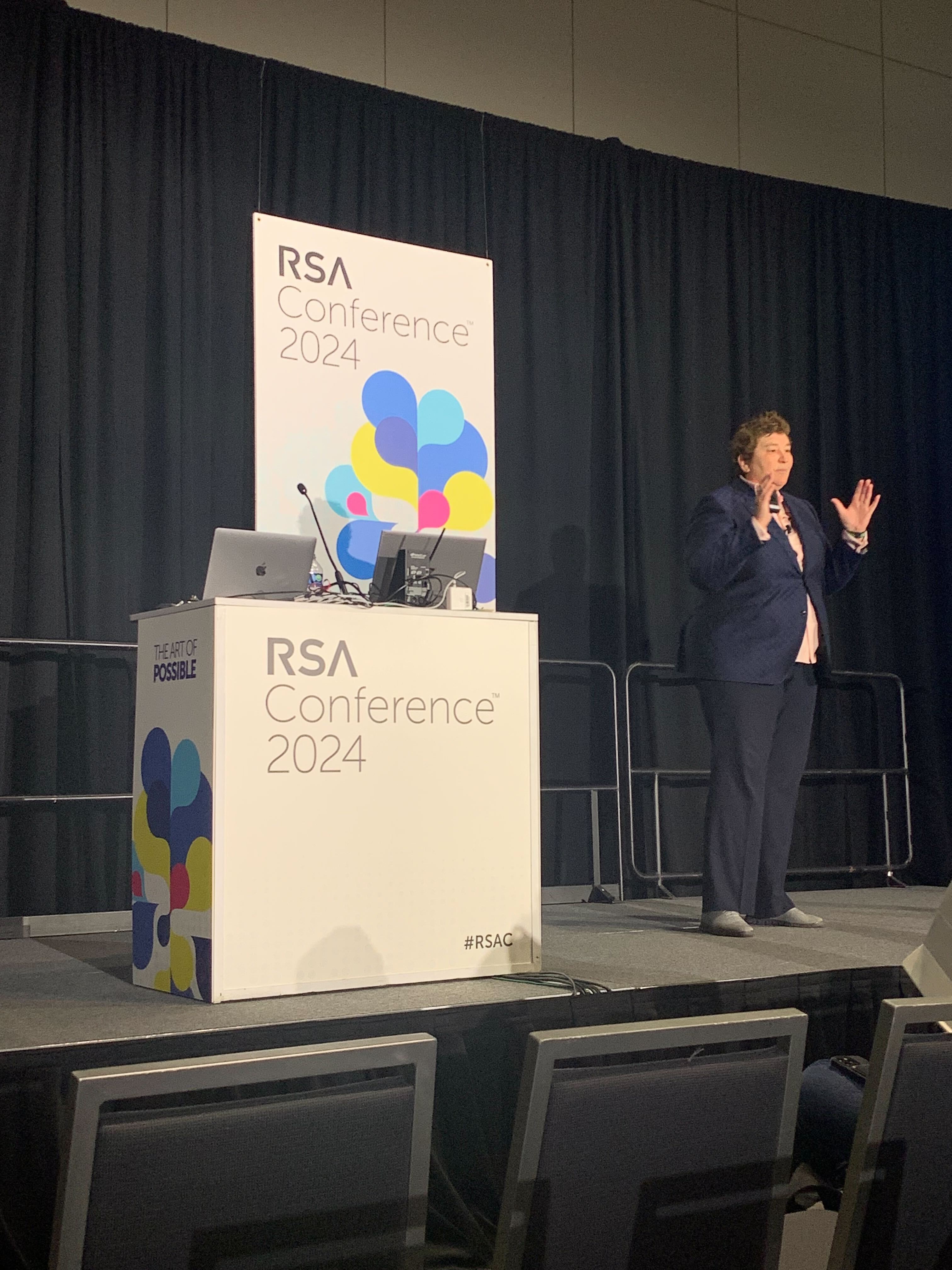
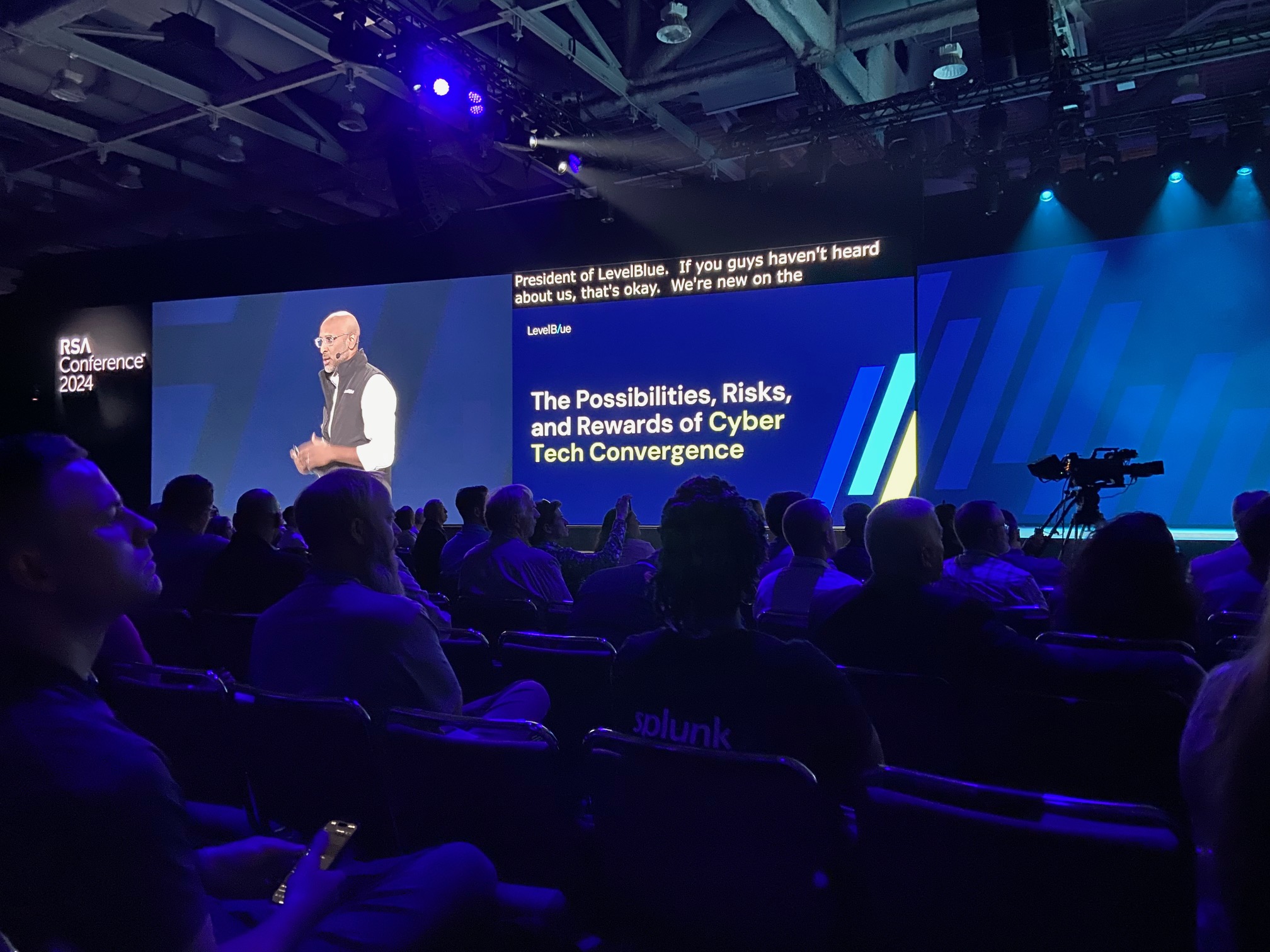
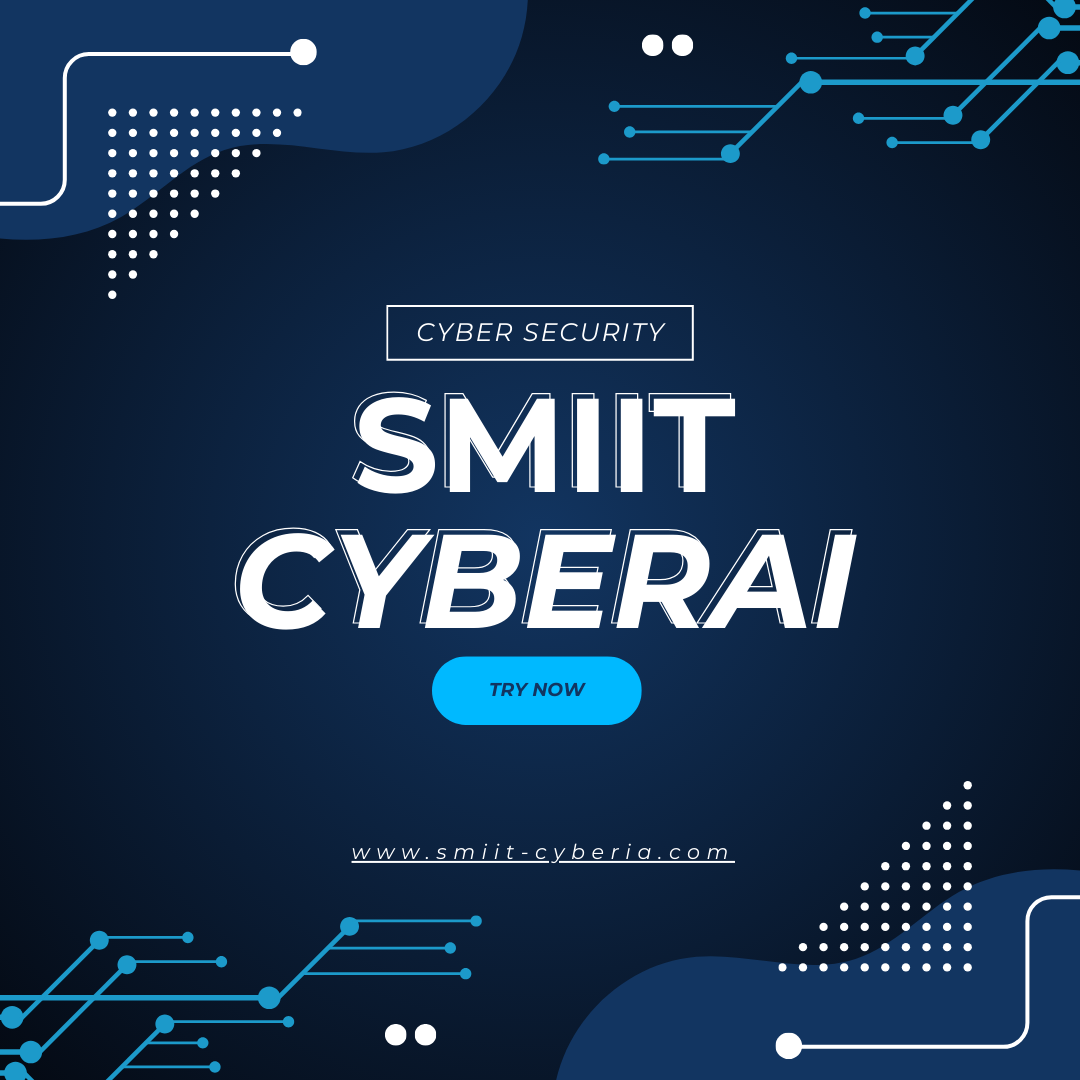
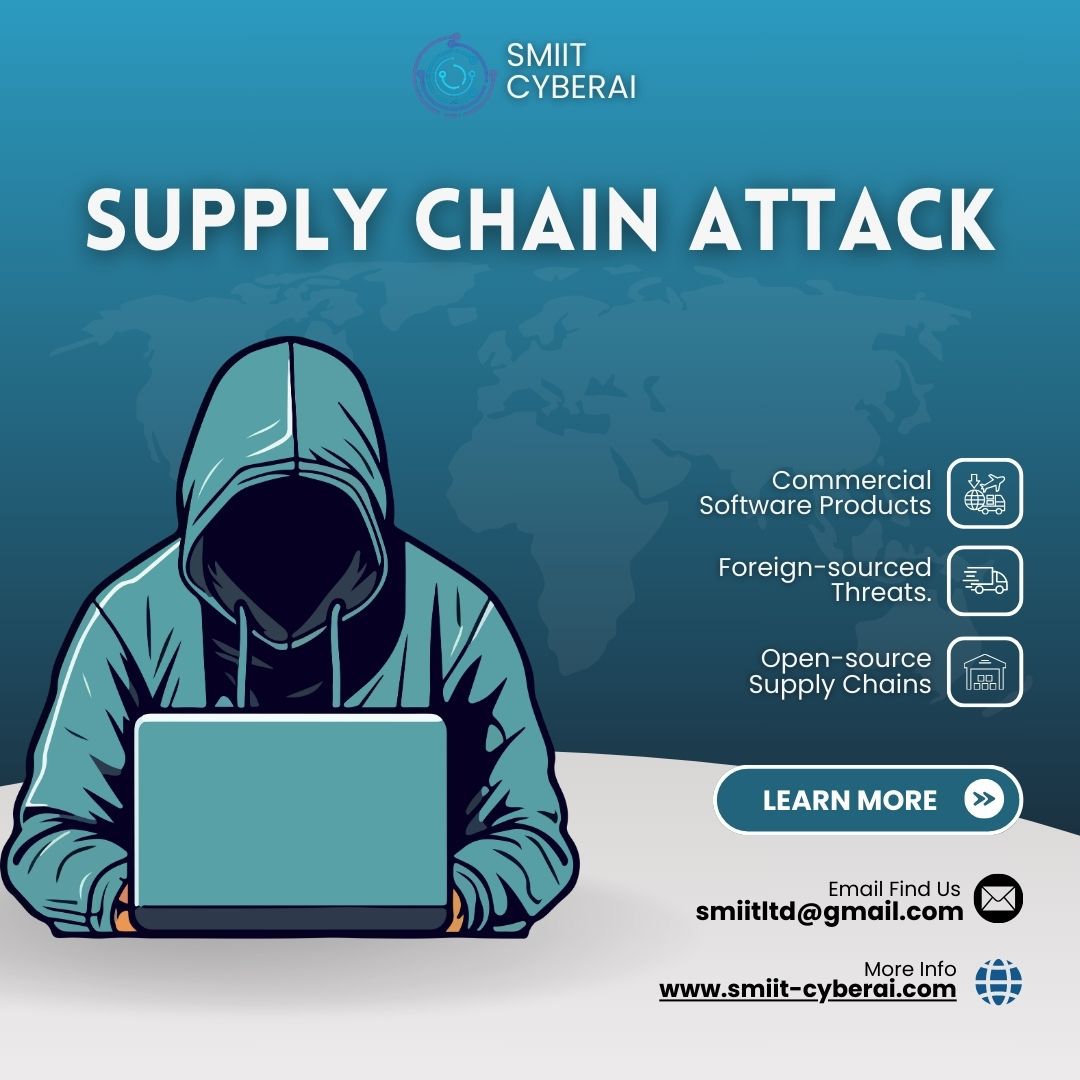
.png)

